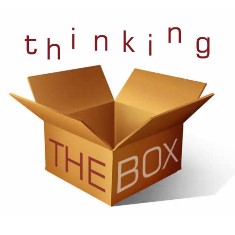Browse Blog Categories
- General (90)
- Business (94)
- Business Coaching (71)
- Business Management (97)
- Business Systems (25)
- Entrepreneur (71)
- Executive Coaching (34)
- Family Business (83)
- Leadership (99)
- Management (91)
- Marketing (16)
- Profitability (19)
- Sales (18)
- Speaking Topics (5)
- Success In Business (97)
- Team Building (41)
- Time Management (3)
Janna's Blog
(Without one you can die!)
 The best way to fail at a business is not having a plan; the best way to wander through your career and get stuck in a rut is by not having a plan; and--you guessed it--the best way to get lost on a mountain is not having a plan.
The best way to fail at a business is not having a plan; the best way to wander through your career and get stuck in a rut is by not having a plan; and--you guessed it--the best way to get lost on a mountain is not having a plan. What is critical thinking? There are multiple definitions, some very complex, yet the simple definition is not just the possession of skills but the ability and habit to continually use them in new and different ways. Put another way, critical thinking means using the normal to create and then apply the new.
What is critical thinking? There are multiple definitions, some very complex, yet the simple definition is not just the possession of skills but the ability and habit to continually use them in new and different ways. Put another way, critical thinking means using the normal to create and then apply the new.Curiosity is critical in business. Accepting status quo, what others tell you is right and looking at the world the way everyone else does will and does get you in trouble.
Instead we need to step back and watch a 2 year old. What do they do?
• The explore everything, hold it upside down and look at it in every way possible.
• They challenge what others say and ask WHY? and keep asking WHY?
• “I can do it myself” is their mantra (well maybe we need to moderate that perspective.)
• There is nothing they can’t do in their mind.
• They are ready to take on the world.
Have you lost your natural desire to be curious, ask questions, challenge how others think you should act? If so then stop, slow down and watch a 2 year old. Start exploring your own world. There is so much at our fingertips that passes us by every day.
Curiosity may have killed the cat – but it will grow your business!
Ready to get started
Call or contact Janna Hoiberg online to schedule a free, initial consultation.
There is no obligation and you're guaranteed to learn a few new things about your business.